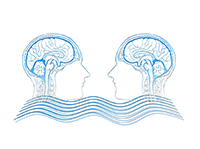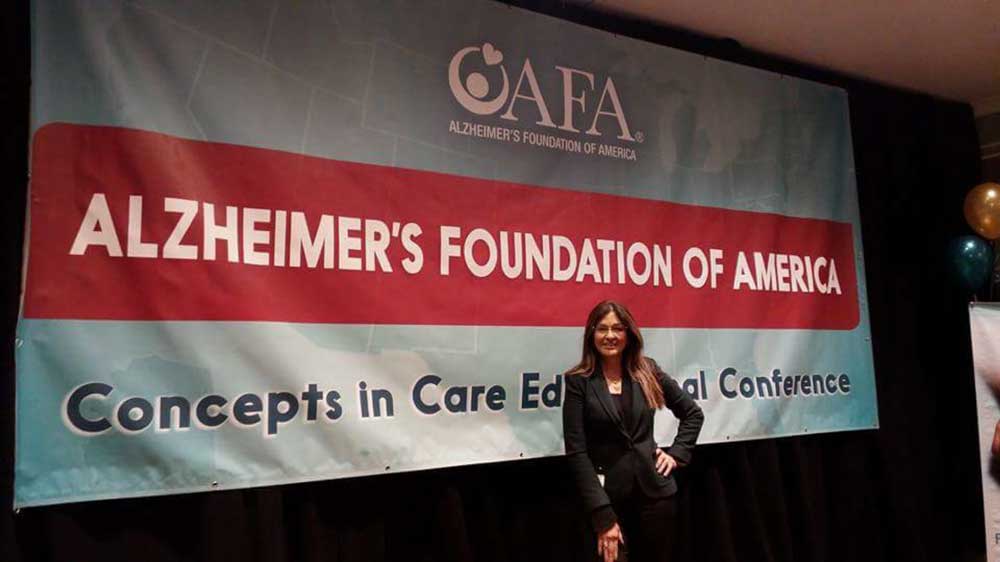DEMENTIA
In our later stage of life, dementia has become one of the most frequent conditions found in the elderly. Dementia is associated with a variety of conditions that develop when nerve brain cells called neurons die or begin to decrease their normal functionality. The loss of these neurons cause a change in cognitive and motor function behaviors causing a person to lose the ability to perform even the simplest daily life tasks.
A person with Dementia may present alterations in his/her memory, not solely with language but also visible in daily planning, in physical mobility generating loss of functionality and independence in activities of daily living such as cooking, shopping, going for walks, etc.
DIAGNOSTIC CRITERIA FOR DEMENTIA
- Evidence of cognitive decline in one or more cognitive characteristics such as: attention, memory, motor coordination, language, perceptual ability, motor or social cognition.
- Documented impairment by a neuropsychological testing.
- A significant sudden decline in cognitive function (i.e. reasoning, attention, and information retention , etc.) all of which interfere with the individual’s daily activities.
REFERENCE: ALZHEIMER'S DISEASE BOOK
MEMORIES TO BE DEVANCED
AUTHOR: PATRICIA MONTAÑES
YEAR: 2016
COMMON CRITERIA FOR ALL DEMENTIA
DEVELOPMENT OF MULTIPLE COGNITIVE ALTERATIONS MANIFESTED BY:
- CHANGE IN MEMORY: difficulty in processing new information as well as recalling past memories.
- AFASIA: alteration in language, difficulty in the expression and comprehension of ideas.
- APRAXIA: alteration in ability to perform, plan and execute physical movements of the body.
- AGNOSIA: failure to naming and recognizing objects and understanding their functions.
- SOCIAL INTEGRATION: difficulty in socializing with other people
COMFORT’S COGNITIVE STIMULATION PROGRAM
Recognizing the importance of livelihood in old age, COMFORT offers a cognitive stimulation program, in which activities are developed to maintain and strengthen the performance of everyday activities for those adults with cognitive impairments.
OBJETIVO
Strengthen residual skills of older adults by maintaining their functionality through sensory, motor and cognitive activities to attempt to delay the progression of pathological aging.
COMFORT’S COGNITIVE STIMULATION PROGRAM
Our activities are planned to maintain cognitive, sensory and motor skills for the functionality of the elderly in activities of daily living for the individual who face a cognitive impairment or diagnosis of dementia.
PROGRAM AREAS
Actividades planeadas para mantener habilidades cognitivas, sensoriales, motrices para la funcionalidad del adulto mayor en las actividades de la vida diaria, El programa es dirigido al adulto mayor con deterioro cognitivo o diagnostico de demencia.

COGNITIVE
Through the analysis of images provided, the elderly person names objects, actions, experiences, to encourage them to generate connections and share their opinions while listening to others , observing and connecting the possible relations between the images presented.

SENSORY
With the use of aromas, songs, flavors and a variety of textures, we work on stimulating memories, ideas and assist with the expression of opinions and preferences in the mind of the elderly.

DAILY LIFE ACTIVITIES
It is essential for older adults to maintain independence and functionality in their everyday life. We provide activities where they can work on self-care, personal hygiene, etc.

Alzheimer conferences Participation April 2017
Alzheimer´s Foundation Of America
© 2017 Comfort Adult Day Care | Sitemap

